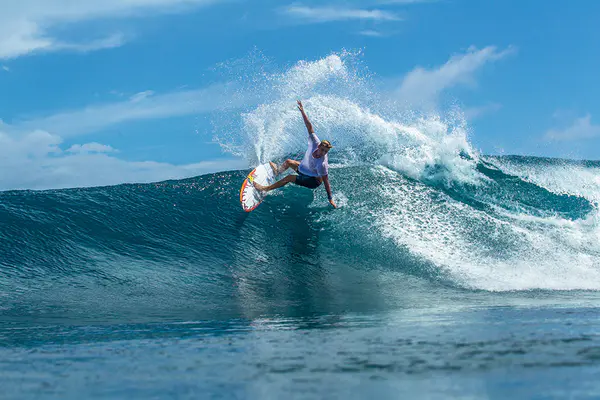Surfing is more than just a sport; it’s a lifestyle, a culture, and a passion that transcends borders. From the golden beaches of Australia to the volcanic shores of Hawaii, surfers chase the perfect wave, driven by an insatiable desire to ride the ocean’s most powerful and majestic formations. This article delves into the world’s best surfing spots, exploring what makes each location unique, and why these destinations have earned their places on the global surfing map.
See Also: The 15 Best of British Campsites
The Science Behind the Perfect Wave
Oceanography and Surfing: Understanding how waves are formed by wind, tides, and the seafloor.
Wave Types: Discussing different wave types (e.g., point breaks, reef breaks, beach breaks).
Seasons and Swells: How the changing seasons affect wave quality and size.
Top Surfing Destinations in North America
California, USA
Spotlight: Mavericks: Known for its monstrous waves, Mavericks is a destination for only the most experienced surfers.
Other Notable Locations: Huntington Beach, Malibu, and Trestles.
Hawaii, USA
Spotlight: Pipeline: One of the most famous and dangerous waves in the world.
Other Notable Locations: Waimea Bay, Sunset Beach.
Mexico
Spotlight: Puerto Escondido: Often referred to as the “Mexican Pipeline,” it’s known for its heavy beach breaks.
Other Notable Locations: Baja California, Sayulita.
The Best Waves in Central and South America
Costa Rica
Spotlight: Pavones: Offers one of the longest left-hand waves in the world.
Other Notable Locations: Tamarindo, Playa Negra.
Peru
Spotlight: Chicama: Famous for having the world’s longest wave.
Other Notable Locations: Mancora, Cabo Blanco.
Brazil
Spotlight: Fernando de Noronha: A pristine archipelago with powerful reef breaks.
Other Notable Locations: Saquarema, Rio de Janeiro.
European Surfing Paradises
Portugal
Spotlight: Nazaré: Home to some of the biggest waves ever surfed.
Other Notable Locations: Peniche, Ericeira.
France
Spotlight: Hossegor: Known as the “surfing capital of Europe,” with world-class beach breaks.
Other Notable Locations: Biarritz, La Gravière.
Spain
Spotlight: Mundaka: Famous for its long, barreling left-handers.
Other Notable Locations: Zarautz, Playa de Somo.
Africa’s Hidden Gems
South Africa
Spotlight: Jeffrey’s Bay: Known for its perfect, fast, and powerful right-hand point break.
Other Notable Locations: Dungeons, Durban.
Morocco
Spotlight: Anchor Point: A legendary right-hand point break.
Other Notable Locations: Taghazout, Imsouane.
Senegal
Spotlight: Ngor Right: A consistent right-hand reef break made famous by the film “The Endless Summer.”
Other Notable Locations: Secret spots along the coast.
Asia’s Surfing Highlights
Indonesia
Spotlight: Uluwatu: A legendary surf destination with a perfect reef break.
Other Notable Locations: Padang Padang, G-Land.
The Philippines
Spotlight: Cloud 9: Known for its hollow, fast, and powerful waves.
Other Notable Locations: Siargao, La Union.
Sri Lanka
Spotlight: Arugam Bay: A world-class point break with a laid-back atmosphere.
Other Notable Locations: Hikkaduwa, Weligama.
Oceania: Surfing’s Spiritual Home
Australia
Spotlight: Bells Beach: Iconic for its long, powerful right-handers.
Other Notable Locations: Snapper Rocks, Margaret River.
New Zealand
Spotlight: Raglan: Famous for its long left-hand point break.
Other Notable Locations: Piha, Taranaki.
Fiji
Spotlight: Cloudbreak: Known for its powerful, barreling waves that break over a shallow reef.
Other Notable Locations: Restaurants, Namotu.
The Culture and Community of Surfing
Surfing as a Way of Life: Exploring the global surfing culture and the sense of community among surfers.
Environmental Stewardship: How surfers are at the forefront of ocean conservation efforts.
Surf Tourism: The impact of surfing on local economies and how to surf responsibly.
Conclusion
Surfing offers an unparalleled connection with nature, an adrenaline rush, and a sense of achievement that few other sports can match. The pursuit of the perfect wave takes surfers to some of the most beautiful and remote locations on Earth, each with its unique challenges and rewards. Whether you’re a seasoned pro or a beginner, the world’s best waves are out there waiting for you. All you need is a board, a sense of adventure, and a willingness to explore.
FAQ: Where the Best Waves for Surfing Can Be Found?
Q: What factors should I consider when choosing a surf spot?
A: When choosing a surf spot, consider the following factors:
Wave quality: look for spots with consistent swells and good wave formation
Tide: pay attention to the tide schedule and choose a spot that works well with the tide you’ll be surfing in
Crowds: avoid crowded spots if you prefer a more peaceful experience
Safety: choose a spot with lifeguards or other safety measures in place
Q: What equipment do I need to go surfing?
A: To go surfing, you’ll need the following equipment:
Surfboard: choose a board that’s appropriate for your skill level and the type of waves you’ll be surfing
Leash: a cord that attaches to your ankle and the board to keep it from getting lost
Wetsuit or rash guard: protects your skin from the sun and ocean elements
Sunscreen: protects your skin from harmful UV rays
Wax: provides traction on the board for your feet
Q: How do I know if a wave is too big for me?
A: If you’re unsure if a wave is too big for you, consider the following factors:
Height: if the wave looks taller than you are, it may be too big for your skill level
Speed: if the wave is moving faster than you can paddle, it may be too powerful for you to handle
Power: if the wave looks like it has a lot of energy and force behind it, it may be too challenging for you to ride

